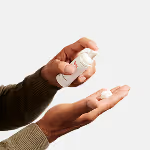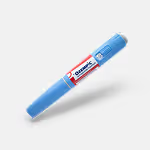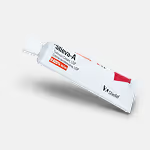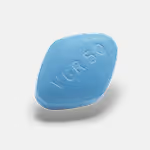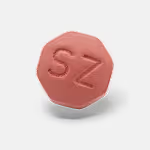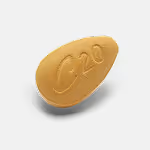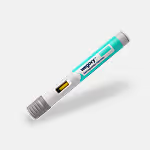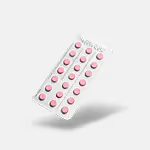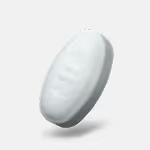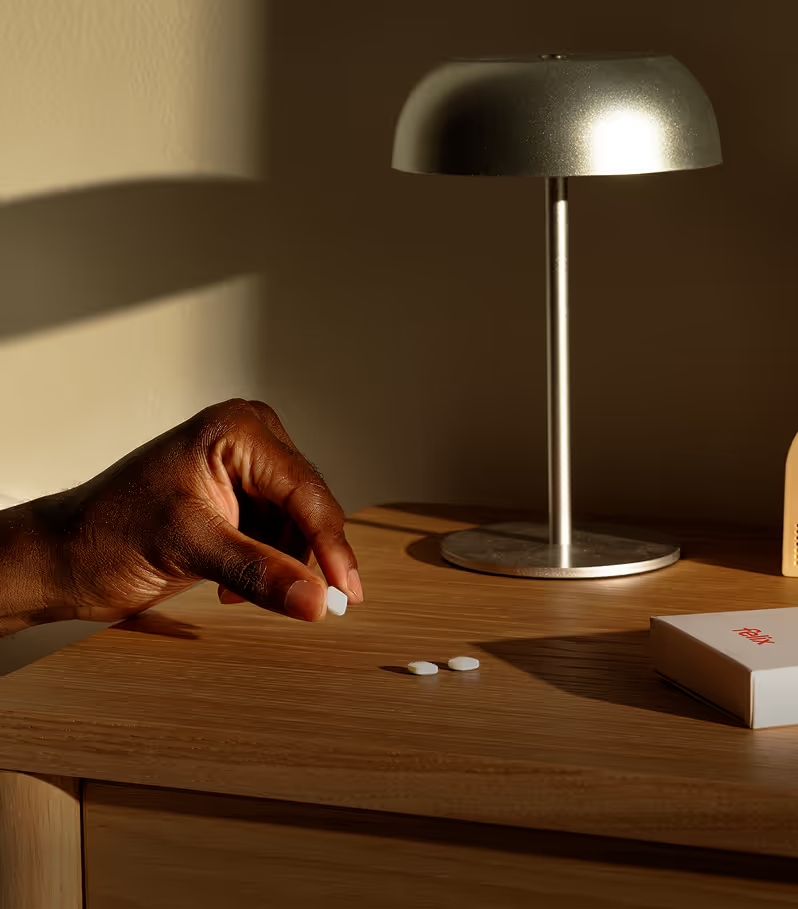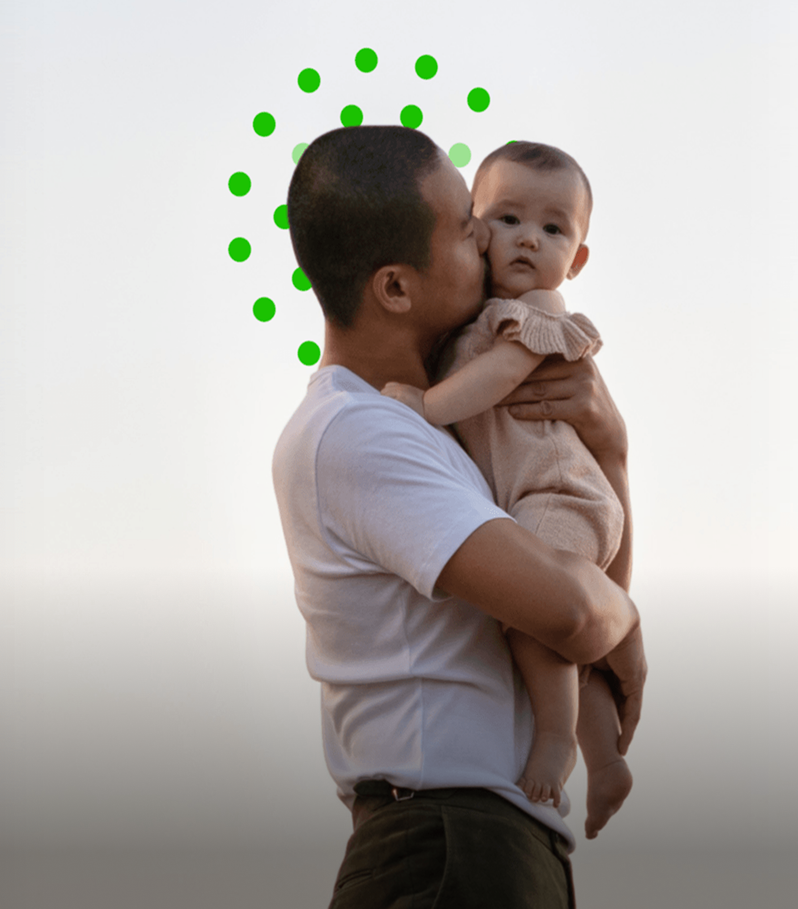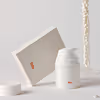Download the Felix App
Earn reward, visit our shop and get exclusive offers on the app
Download nowEarn reward, visit our shop and get exclusive offers on the app
Download nowPut your health first in 2026 with free visits on all categories, and $200 off longevity testing.
Download nowPut your health first in 2026 with free visits on all categories, and $200 off longevity testing.
Download now
AI-generated summaries may be inaccurate and do not constitute medical advice. Third-party AI tools are not under Felix's control, and your use of them is at your own risk.
It happens. You wake up, look in the mirror, and there’s an unwelcome passenger on your chin. Hormonal acne is rearing its ugly head. This can be incredibly frustrating and disheartening, and for some people, it can be hard on self-esteem and confidence. No one loves dealing with acne.
The good news is you don’t have to deal with acne alone. There are a few different types of acne, one of which is hormonal acne.
And before you start getting to work popping those zits (note: do not pop zits), arm yourself with the right information about hormonal acne and learn what you can do about yours.
Hormonal acne, also called acne vulgaris, is exactly what it sounds like: acne brought on by hormonal fluctuations. Hormonal acne usually occurs during puberty when sex hormones start ramping up, but it can also occur during adulthood.
In fact, it’s far more common among adults than you might realize, particularly in women.
This is because of hormone fluctuations that happen during menstruation, and an increase in androgens during menopause.
Having said that, hormonal acne can happen to anyone at any age and is a skin condition that can be addressed and treated.
Hormonal acne happens when the body produces excess sebum, the oily substance secreted from your pores. These pores normally keep your skin from drying out and your hair from becoming damaged.
Too much sebum, however, can cause skin cells to clump together in a pore — and where clumping occurs, a pimple follows. These pimples are also known as acne lesions and can vary in size and severity, and sometimes be quite painful. There are a few types of lesions that can form:
Lesions that form can also become infected with a type of bacteria called Propionibacterium acnes (P. acnes) which can increase an inflammatory response and make clogged pores worse.
Hormonal acne generally affects more women than men. Up to 22% of women will experience hormonal acne in adulthood, versus only 3% of men.
This is generally because of hormonal fluctuations women experience are more severe than men. For some people who experience acne, it can be associated with anxiety and depression.
Hormonal acne is particularly stubborn for those who have a strong family history of acne.
Symptoms of hormonal acne generally tend to be quite obvious. They include:
Hormonal acne can last for many years, and in some cases can be difficult to treat. However, the treatment that is available can be very effective.
There are a few main factors involved in the development of hormonal acne. They are:
Hormonal acne can be brought on by:
Sometimes treating hormonal acne can be challenging, which is why you should talk to a healthcare practitioner.
While hormonal acne is usually the result of hormones, some adults who experience hormonal acne have no measurable hormonal issues.
This means their hormonal acne is idiopathic, meaning that there is no known cause.
There are a few approaches to treating hormonal acne. Before you start with treatment, however, it’s best to check with a healthcare practitioner to make sure there are no underlying causes. If there are, recommended treatment may change.
There are numerous treatments available, including salicylic acid, chemical peels, benzoyl peroxide, spironolactone, light treatments, microdermabrasion, and facials. The list goes on. But what may work for one person, may be harmful for another.
A healthcare practitioner can help you parse these out, and put you on the right path to clear skin.
There are a few medical treatments available that your doctor can prescribe.
Retinoid is a common catch-all term for a group of compounds derived from vitamin A. They have a lot of beneficial properties, particularly for skin care.
They are usually the frontline treatment option for a lot of skin care problems, and are a medicinal component in a lot of beauty products.
Retinoids are skin care friends with a lot of benefits.. They can help smooth skin texture, reduce discolouration, and yep, they can help with hormonal acne, too.
Prescription retinoids typically come in a gel or cream form and is used topically. It’s particularly effective for fine lines and dark spots and is often prescribed for hyperpigmentation.
Prescriptoin retinoid is also a great acne medication. With consistent use, prescription retinoid can decrease and lessen the severity of active breakouts.
It can also prevent future acne from forming. It does this by encouraging exfoliation of old skin, and stimulating the production of collagen and elastin, essential molecules in skin health and regeneration.
Retinol is another popular skin care product. You don’t need a prescription for retinol and it is often found in a lot of over-the-counter skin care products.
Retinol helps achieve a brighter complexion and smoother skin. However, while retinol is often added to over-the-counter acne treatment creams, retinol itself is not an active ingredient in acne treatment.
Given that bacteria plays a large role in acne, antibiotics as a treatment only makes sense. Antibiotics can be used to treat several types of bacterial infections, including those that contribute to acne. It’s particularly effective against acne-causing bacteria, P. acnes. It also has anti-inflammatory properties, which is often a compounding issue with acne.
Possible side effects of antibiotics include:
If you experience severe side effects, or side effects are prolonged, see a healthcare practitioner right away.
Given the nature of hormonal acne, oral contraceptives are often prescribed due to their hormone component. Oral contraceptives (birth control pill) to treat hormonal acne contain a combination of ethinylestradiol and one of the following:
Oral contraceptives may not be a wise choice for you if you have a history of blood clots, breast cancer, high blood pressure, or if you smoke. It’s always best to speak to a healthcare practitioner.
Possible side effects of the birth control pill include:
If you experience side effects that worsen or are prolonged, speak to your doctor right away.
Before you try non-medical treatment, talk to a healthcare practitioner first as there may be another underlying cause of your hormonal acne. Not all hormonal acne responds to non-medical treatments and sometimes prolonging treatment can make scarring worse.
There have been some promising studies around tea tree oil and troublesome skin conditions like acne. Tea tree oil is available in many over-the-counter skin care products, mostly as a spot treatment cream. It can be quite astringent so small concentrations (5%) are best.
Before you try tea tree oil, do a skin test as tea tree oil can irritate the skin.
Alpha hydroxy acids are plant-derived acids from citrus fruits. Because AHAs are acid-based, they work as an exfoliant, removing dead skin cells that can clog pores. AHAs can also help smooth skin texture and reduce scarring from previous lesion sites.
AHAs come in over-the-counter masks and creams, but can increase skin’s sensitivity to the sun, so always make sure you’re using your sunscreen.
As with many astringent products, do a skin test first to make sure it doesn’t irritate your skin.
Green tea is a well-known acne treatment that has been used for a long time. Its anti-inflammatory and antioxidant properties make it a popular choice for stubborn breakouts. Studies have shown that topical green tea creams are helpful in treating acne, but ingesting it as a tea doesn’t necessarily help.
Of course, there are plenty of myths around acne, what causes it and how it’s treated. Some of these myths can actually make your acne worse and some are just harmful to your self-esteem and confidence.
Here are a few:
Nope! You do not need to wait for your acne to go away. In fact, waiting can actually make the scarring worse, not to mention prolonging your misery. There are treatments that can help substantially and seeing a healthcare practitioner might actually uncover an underlying medical issue.
Again, nope. Over washing can actually strip your skin of its natural and healthy oils, tricking your skin into thinking that it needs to produce more oil. This can lead to even more acne, not to say really irritated skin and lots of money spent on cleansers.
As tempting as it may be, popping your pimples can be really harmful for your skin. Your hands are filled with bacteria that can get transferred to your skin.
On top of that, popping pimples damages skin, leading to an even bigger inflammatory response, making your skin even more irritated. And if that doesn’t turn you off popping those pimples, doing so just transfers more bacteria to other parts of your skin.
Also, scarring. Just remember those scars can last a long time. Talk to a healthcare practitioner — that’s what they’re there for.
This is a particularly harmful and shaming myth that is really stigmatizing. Acne does not in any way mean an individual has poor hygiene or dirty skin.
Not in the least. It’s a skin condition that can be caused by various factors, including genetics and hormones.
Whether you live with hormonal acne or not, looking after your skin should always be an essential part of your health.
Your skin does so much for you, including protecting your body and keeping you healthy. And healthy skin can contribute to a healthy body.
Diet plays a huge role in your overall health, including your skin. A healthy diet can also help reduce stress and yep, acne.
Some foods that you might want to consume less are:
A diet rich in antioxidants can help your overall health.
Foods rich in vitamin A such as spinach, kidney beans, walnuts, and blueberries are great additions to your diet. Other vitamins and minerals that can help improve your overall health are:
Dealing with hormonal acne can be rough. It takes a toll on your self-esteem, sense of self, and can contribute to depression and anxiety.
Reducing your stress can help you manage both your mental health and your acne. Stress hormones can increase sebum production resulting in worsening acne. Plus, stress isn’t good for your overall health.
Most importantly, be kind to yourself. Know that your acne isn’t who you are, and seek help when you need it.
The good news is that you don’t have to suffer with your acne alone. If you want to be proactive about your hormonal acne, or if you have any questions, Felix’s healthcare practitioners are here to help. Start your Felix assessment today.
Medically reviewed by
References






